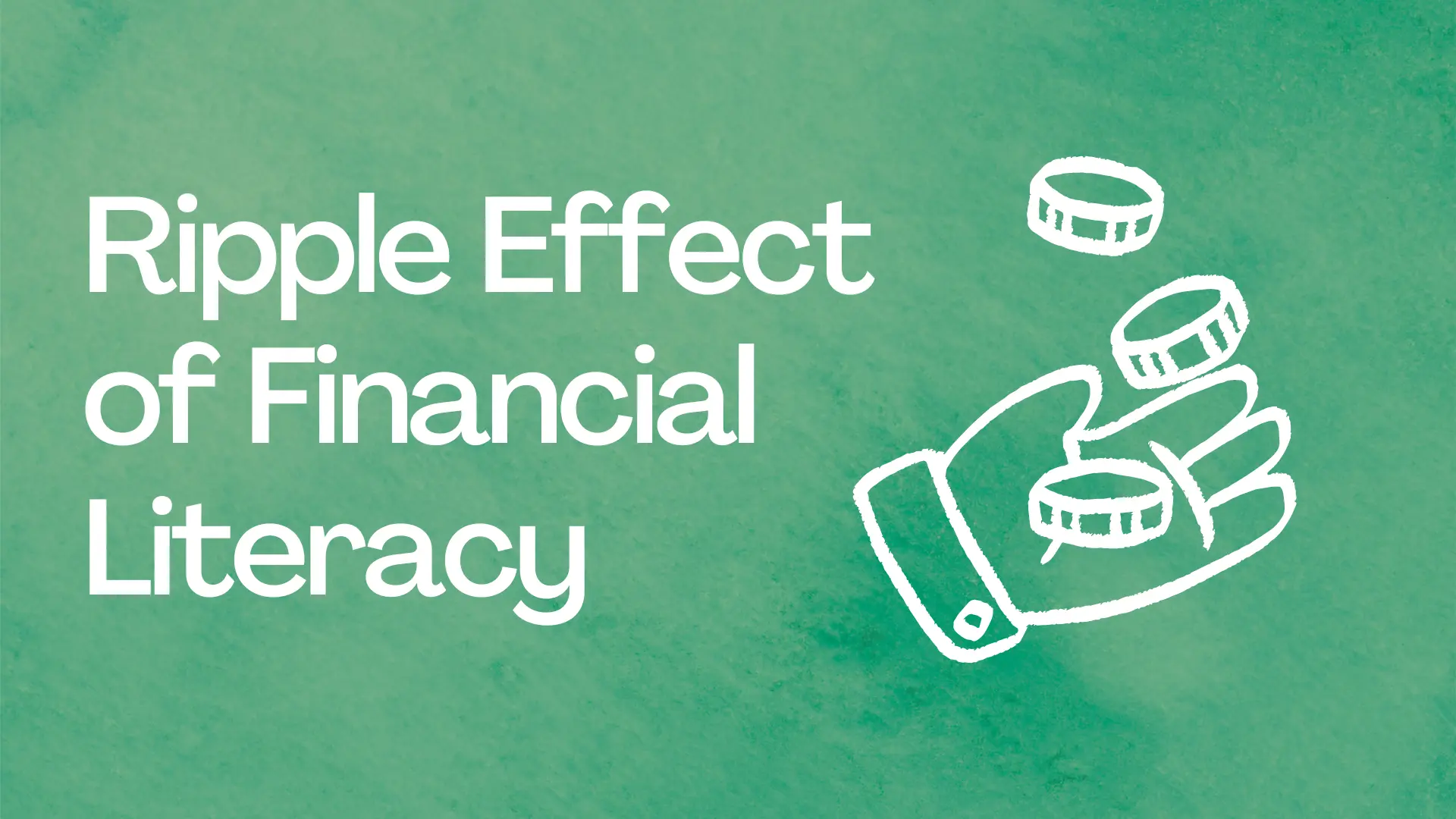
Ripple Effect of Financial Literacy
Financial literacy is more than just understanding how to balance a checkbook or save money. It’s about having the knowledge and skills to make informed financial decisions that can have a ripple effect across individuals, families, communities, and even entire economies. In this article, we’ll explore the profound impact of financial literacy and how it creates a ripple effect that can transform lives and societies.
The Ripple Effect Explained
At its core, the ripple effect refers to the spreading influence or impact of a single event or action. When it comes to financial literacy, this concept manifests in the way that individuals who are financially literate can positively influence those around them, creating a chain reaction of improved financial well-being.
Personal Finance Impact
Financial literacy equips individuals with the knowledge and skills to make better financial decisions. From managing budgets to understanding the implications of loans and investments, being financially literate can lead to reduced debt, increased savings, and greater financial security for individuals.
Family and Community Level Effects
The benefits of financial literacy extend beyond individual households to entire communities. When families are financially stable, communities thrive. Reduced poverty rates, increased economic mobility, and strengthened social networks are just some of the positive outcomes that can result from widespread financial literacy.
Economic Impact
On a larger scale, the ripple effect of financial literacy can have significant economic implications. A population that is financially literate is more likely to contribute to economic growth, reduce the likelihood of financial crises, and foster long-term sustainability.
Educational Initiatives
Educational initiatives play a crucial role in promoting financial literacy. By incorporating financial education into school curriculums and offering adult education programs, communities can empower individuals of all ages to make sound financial decisions.
Government Policies and Financial Literacy
Governments also have a role to play in promoting financial literacy through policies and regulations. By implementing frameworks that support financial education and consumer protection, governments can create an environment where financial literacy can flourish.
Corporate Responsibility
Corporations can contribute to the ripple effect of financial literacy by offering workplace financial education programs and engaging in corporate social responsibility initiatives that promote financial well-being.
Challenges and Solutions
Despite the benefits of financial literacy, there are challenges to overcome, including access barriers and gaps in financial knowledge. Innovative solutions and collaborative efforts across sectors are essential for addressing these challenges and promoting widespread financial literacy.
Global Perspectives
Financial literacy is a global issue, with disparities existing across countries. International efforts to improve financial literacy can benefit all nations and contribute to global economic stability and prosperity.
Technology and Financial Literacy
Technology plays a crucial role in expanding access to financial education. Mobile apps, online resources, and digital platforms porn are making financial literacy more accessible than ever before, helping to bridge the digital divide.
Empowerment and Self-Reliance
At its core, financial literacy is about empowerment and self-reliance. By equipping individuals with the knowledge and skills to navigate the complexities of the financial world, financial literacy can break the cycle of poverty and build a more resilient future.
Psychological and Societal Impacts
The ripple effect of financial literacy extends beyond economic outcomes to impact mental well-being, social equality, and societal mobility. By reducing financial stress and empowering marginalized groups, financial literacy can contribute to a more equitable society.
Long-term Effects
The long-term effects of financial literacy are far-reaching, contributing to the achievement of sustainable development goals and creating opportunities for future generations to thrive. By recognizing the interconnectedness of financial literacy with other domains, we can create a ripple effect that lasts for generations to come.
Conclusion
In conclusion, the ripple effect of financial literacy is profound and far-reaching. By empowering individuals, families, and communities to make informed financial decisions, we can create a chain reaction of positive outcomes that lead to greater economic stability, social mobility, and individual well-being. It’s time to recognize the importance of financial education and take action to promote widespread financial literacy for a brighter future.
FAQs
- Why is financial literacy important? Financial literacy is important because it empowers individuals to make informed financial decisions, leading to greater financial security and well-being.
- How can I improve my financial literacy? You can improve your financial literacy by seeking out educational resources, attending workshops or seminars, and practicing good financial habits.
- What are some common barriers to financial literacy? Common barriers to financial literacy include lack of access to education, cultural taboos around money, and complex financial products.
- What role do governments play in promoting financial literacy? Governments can play a key role in promoting financial literacy through policies and regulations that support financial education and consumer protection.
- How can businesses contribute to improving financial literacy? Businesses can contribute to improving financial literacy by offering workplace financial education programs and incorporating financial literacy into corporate social responsibility initiatives.
Leave a Reply